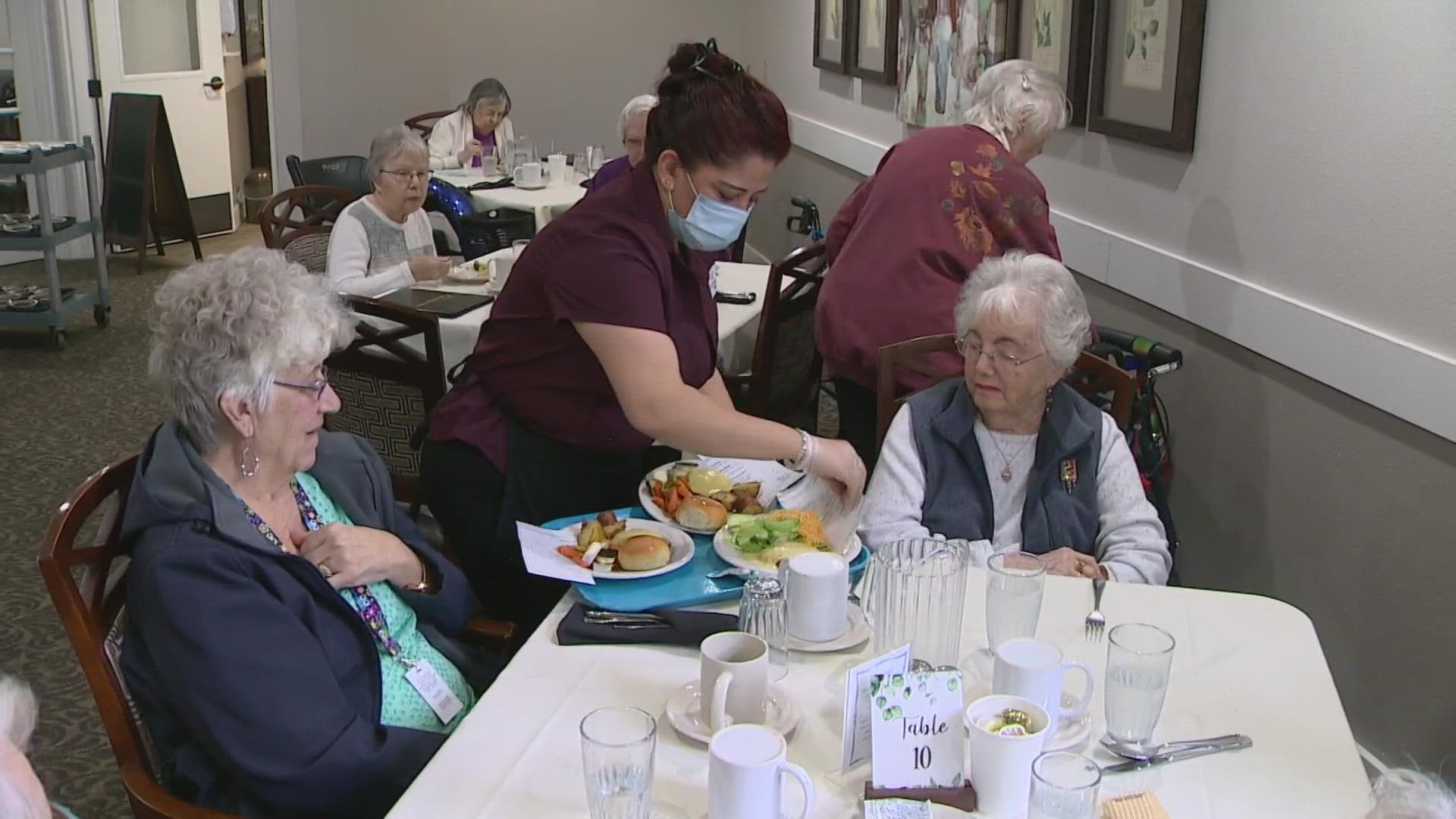MOUNT VERNON, Wash. — A tax on meals for senior citizens is on the table in Olympia right now.
The tax treats retirement home kitchens like restaurants -- a move that could cost seniors hundreds of dollars every year -- and possibly have even starker consequences.
Mealtime at Mount Vernon's Mountain Glen retirement home is the best part of the day for Barbara Lane.
On Fridays, crab cakes are on the menu.
As she digs in, Barbara says it's the Department of Revenue that has her feeling crabby.
"This tax is absolutely asinine," says the feisty 89-year-old, adding, "excuse my language."
It's unclear when it started but the state Department of Revenue has been taxing every meal served in retirement communities across Washington.
In Mount Vernon that's 8.9%.
Mountain Glen officials say they weren't aware of the tax until they were audited in 2018 and told to pay up.
The state reasons that food is prepared for and served to residents -- just like in a restaurant -- so it should be taxed as such.
But 72-year-old Lee Bravener says Mountain Glen is his home and no one should be taxed for eating at home.
"We live here. This is our family. This is our home. That's our dining room," he says. "We do in that dining room the same thing that people at home do in their dining room."
Barbara and Lee both traveled to Olympia this month to testify in favor of House Bill 1431 which would exempt retirement homes from the tax.
"I feel like the people who want to charge us with the tax must not have grandparents or elderly parents living in homes like these," Barbara told the House Finance Committee.
DOR is neutral on the bill.
A spokesman says if the state legislature wants to exempt retirement homes from the meal tax, the department will accept it.
Quinn Staley, attorney for Mountain Glen's parent company, Cascade Living, says the company is refusing to pay the tax because it would hurt residents.
"To add on to their daily living costs for these seniors is just wrong and largely unaffordable for these folks," he says.
The tax could cost residents at Mountain Glen, most on a fixed income, up to $700 per year.
Some would have to move. Others would have equally unpalatable decisions to make.
"They would make a decision whether to buy their medications or have food," says Barbara. "That's the sad part."
While Mountain Glen is refusing to pay the tax, some communities have been paying it for years.
If the bill is passed, the question of whether communities should be refunded is raised.
"Revenue has consistently taken the position that retroactively refunding validly paid taxes is not constitutional," a DOR spokesman said. "This is because the Washington Supreme Court has held that the Washington Constitution’s prohibition on the gifting of public funds prohibits the refund of validly collected taxes based on a retroactive repeal of the tax."
He added, "It’s also important to note that two parties have appealed the audit determination and the cases are pending before the Washington State Board of Tax Appeals. If the taxpayers in the pending appeals are ultimately successful, they and all similarly situated taxpayers will be entitled to refunds with interest – even without this legislation."

